Protecting chickens from predators is one of the biggest challenges a backyard chicken keeper faces. The best offense is a good defense and knowing the basics of coop security is essential to keeping chickens safe from harm. The following are my best recommendations for predator-proofing chickens based on my experiences.
1. Don’t allow Chickens to Roost Outside
Chickens are most vulnerable when they are asleep and many chicken predators are active at night, making the inside of a locked coop the safest place for them. Teaching chickens to return to the coop at night is best done from the time they first take up residence in the coop, but they can also be trained at a later date if necessary. Read about Coop Training, here.
2. Never Rely on Chicken Wire for Safety
Chicken wire is meant to contain chickens, not to exclude predators. A hungry raccoon can defeat chicken wire as easily as opening an envelope. Hawks can reach in through chicken wire with their talons, pulling a bird to its death. Never rely on chicken wire as a safety fencing.
3. Install ¼ inch Hardware Cloth Liberally
Snakes and members of the weasel family can get into the coop through very small openings, devastating a flock in very short order. Using hardware cloth, cover any opening in the coop and around the run that is greater than ¼ inch. All windows should be secured with hardware cloth. Window screens will not keep predators out. Use screws and washers to secure the hardware cloth to the structure, not staples! Strong critters like raccoons can push and pull hardware cloth secured with staples, dislodging it.
My chickens free-range all day and the coop doors are left open. The eastern rat snake in this video slithered into the coop nest box for a three egg lunch. He was scared off into the woods from whence he came. The only way to keep snakes out of the chicken coop completely is to secure it day and night with 1/4″ hardware cloth at every possible access point into the coop and run.
4. Bury it or put an Apron on It
To deter digging predators, dig a 12″ trench all the way around the perimeter of the coop, burying the hardware cloth. Dirt floors should have hardware cloth buried at least 12″ beneath them. An alternative to a trench is to extend a 12″ hardware cloth apron out from the perimeter of the run. An apron isn’t as effective as a trench, but will provide a degree of security from less ambitious digging critters.
5. Cover the Run
For maximum security, cover the run with a roof or hardware cloth to protect against flying and climbing predators. A lesser degree of protection can be obtained by stringing netting on top of the run to deter hawks, owls, etc. Climbing predators will not be deterred by netting, however.
6. Close Coop and Run Doors at Dusk
One never knows when a nocturnal predator might begin its hunt for food prematurely, therefore, the coop and run doors should be secured as soon as the flock has gone to roost for the night. An an electronic poultry door can manage this detail automatically. Always check the chicken run to be sure it’s empty before securing the door at night. While my flock’s pop door automatically closes after dusk, had I not checked the run to be sure it was clear, this opossum would have been locked inside, waiting for my flock in the morning.
7. USE 2 STEP LOCKS ON DOOR LATCHES
Raccoons are very adept at unlatching simple locks and turning basic door handles. Locks requiring multiple steps to unlatch are more secure plan than a hook-and-eye style lock. Spring locks and barrel-style locks are recommended.
Important personal safety note: Many chicken keepers have had the misfortune of locking themselves inside the coop or run. Formulate a human escape route.
8. ELIMINATE FEED
Food attracts predators and pests such as mice and rats. While predators may succeed in gaining entry into the run, they can cause significant property damage and stress to the flock. If food must be left in the run, consider using a treadle feeder, such as Grandpa’s Feeders, which conceals feed, reducing the temptation.
9. FLOCK GUARDIAN ANIMALS
Many animals make excellent flock guardians, including geese, llamas, donkeys, guineas and certain breeds of dog, including Great Pyrenees, Shepherds and Akbash. Roosters are attentive, early warning systems, alerting flock-mates to take cover when danger is nearby; many a rooster has sacrificed his own life battling a predator in defense of his hens.
10. PROVIDE COVER FOR FREE-RANGE CHICKENS
A free-range flock is at higher risk of predation than confined birds. Providing natural and artificial cover in the form of bushes, boxes, branches will provide a degree of security and safe-haven when predators are detected.
11. KNOW THE ENEMY
One of the basic tenets of The Art of War is to know the enemy. Knowing the type of predators and how they operate enables one to plan predator-specific defenses. A trail cam with night vision provides excellent reconnaissance as to predator types and patterns of behavior.
This trail cam was my birthday present this year. I don’t worry about predators getting into my coops, I’m just curious about what else lives in the woods behind my coops.
11. DECEPTION, DEFENSE, DETERRENTS
Any of the following can be used as a part of an overall strategy to deceive, deter and defend against chicken predators. None should be relied upon as a magic bullet, however.
- Solar, motion-activated siren with lights
- Decoy animals (owls)
- Music, talk radio
- Pinwheels, bird scare tape, disco ball, hanging CDs (shiny things are purported to deter hawks, but I have not found these things to be effective. They can’t hurt though.)
- Electric poultry fencing
- Anti-Hawk Netting
- Predator deterrent systems, such as the one shown above The best ones will have multiple layers of protection, including motion sensors, lights (red, blinking & motion-activated) and alarms.
- Electric Poultry Netting or Electric Fencing
Electric fencing must be baited with something tasty like bacon to deter predators such as bears from returning to the area. Bears will not be deterred simply by touching an electric fence.
Kathy Shea Mormino
Affectionately known internationally as The Chicken Chick®, Kathy Shea Mormino shares a fun-loving, informative style to raising backyard chickens. …Read on


shop my SPONSORS




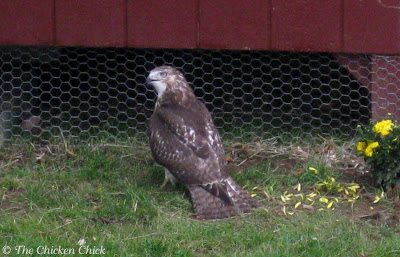
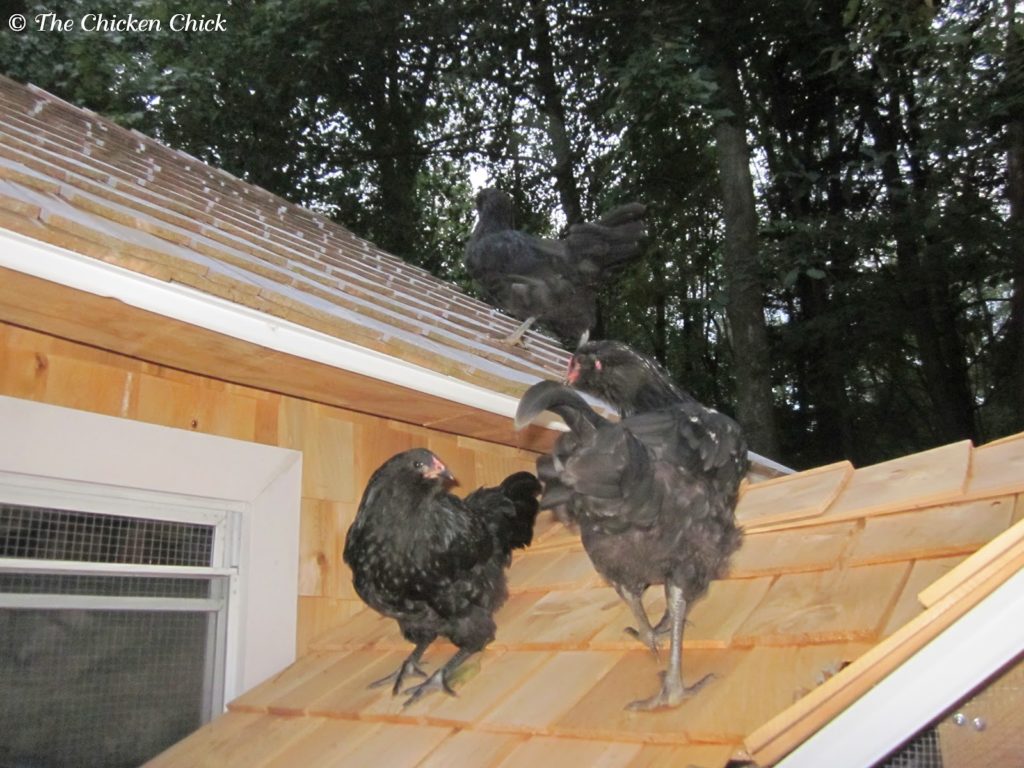

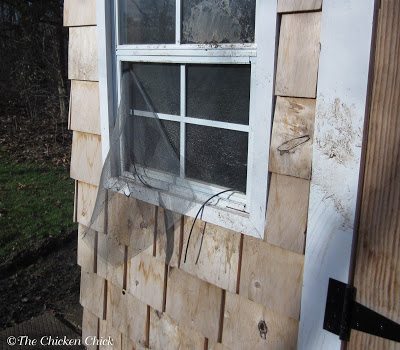

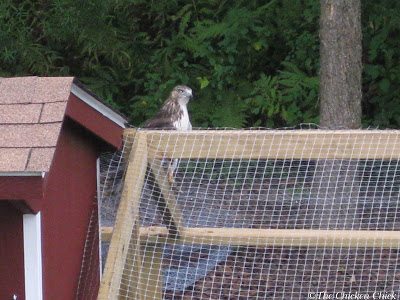
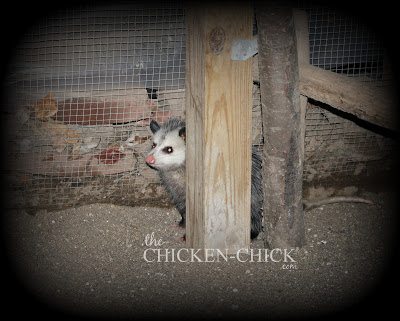


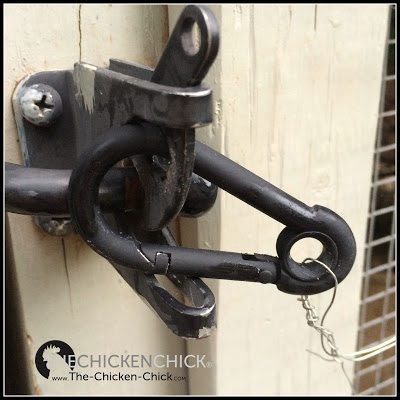


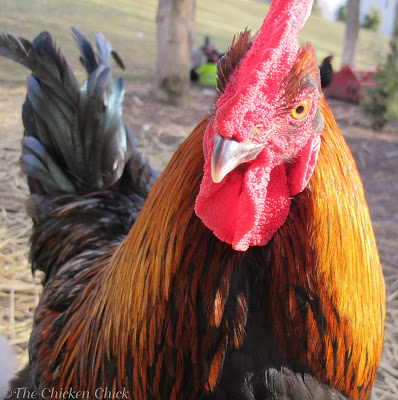




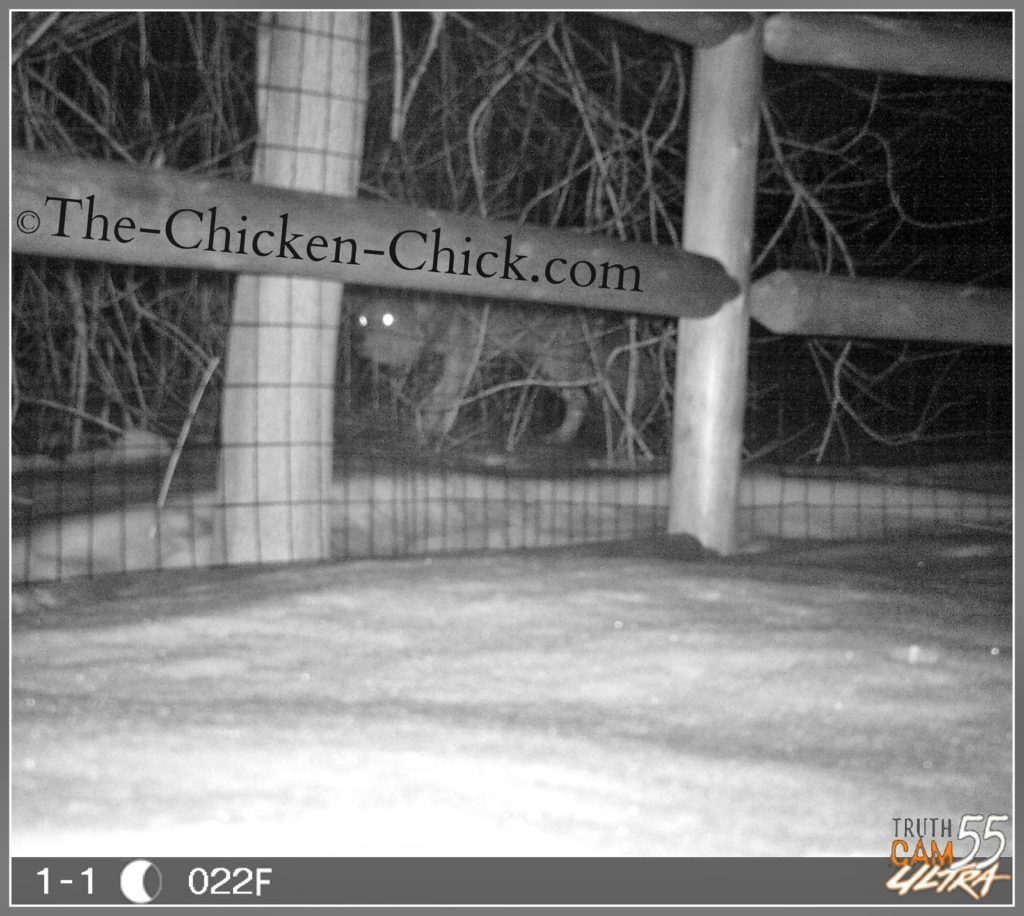

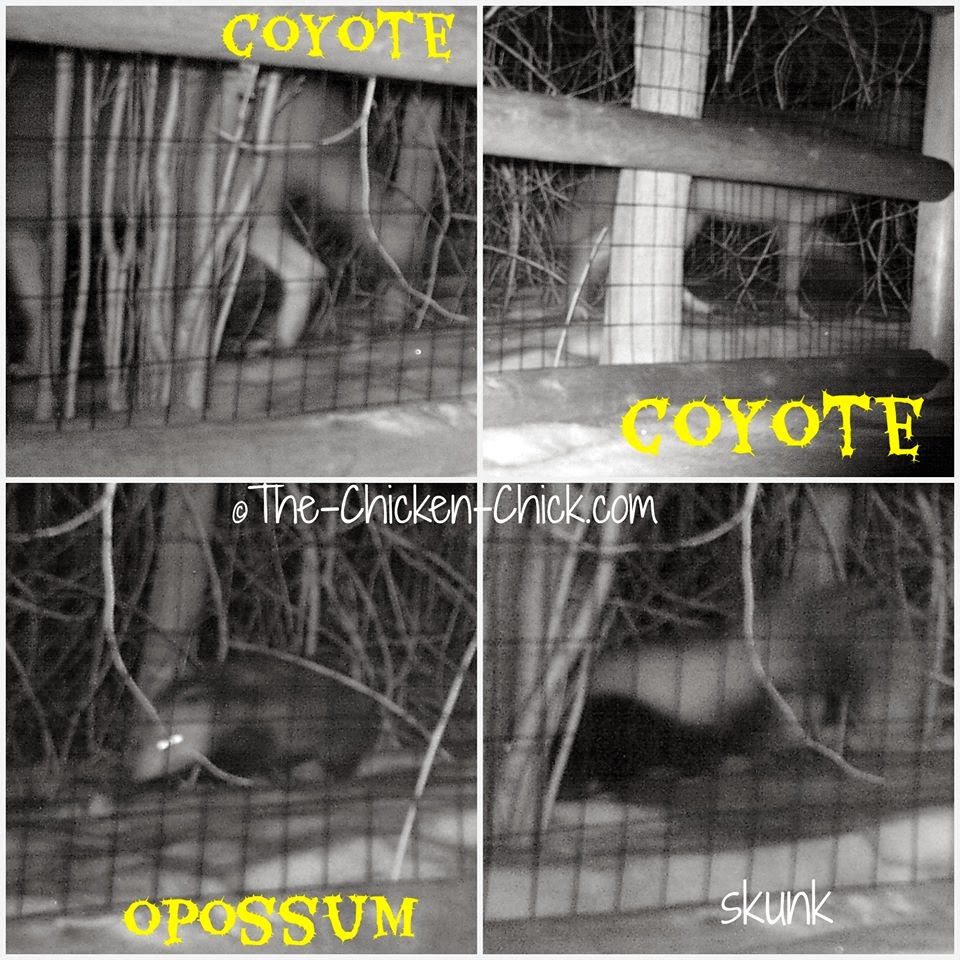

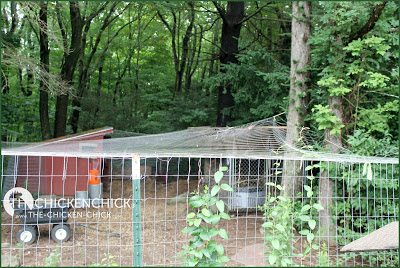
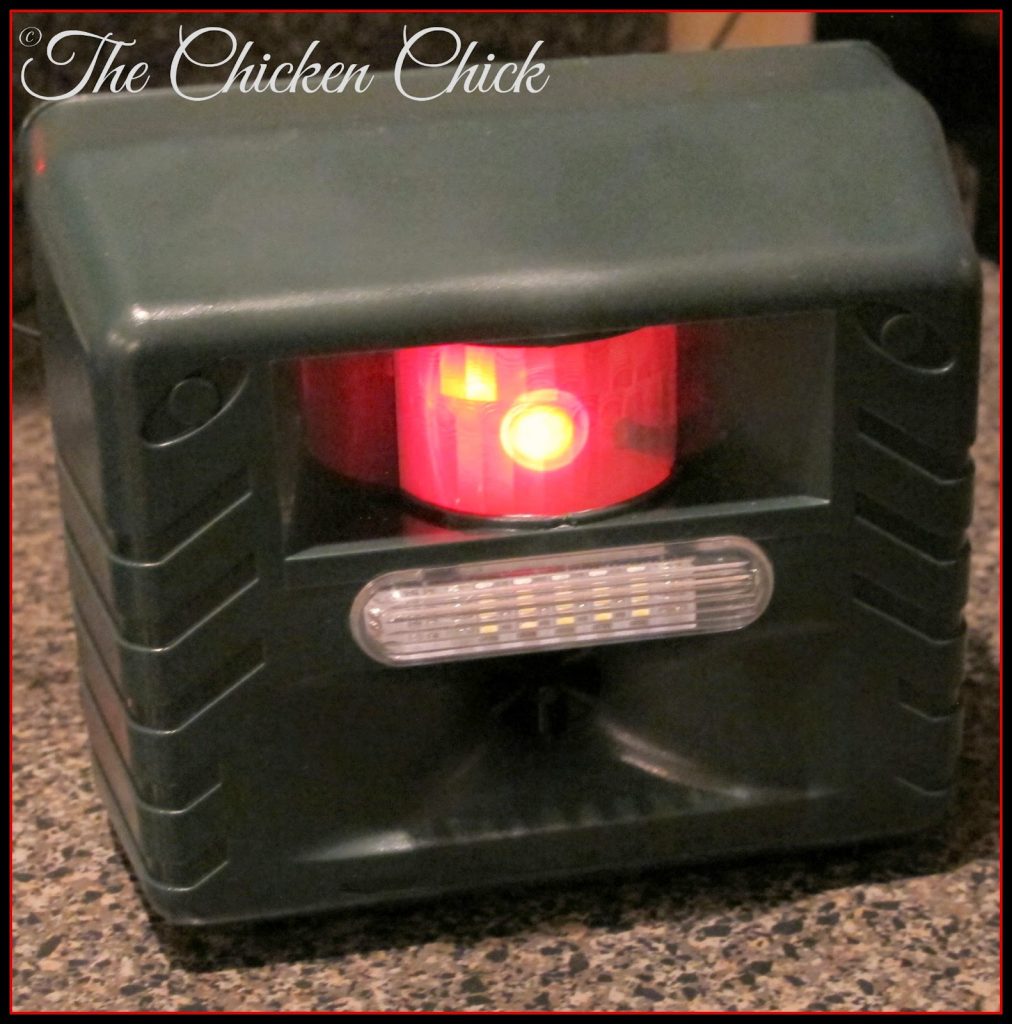
















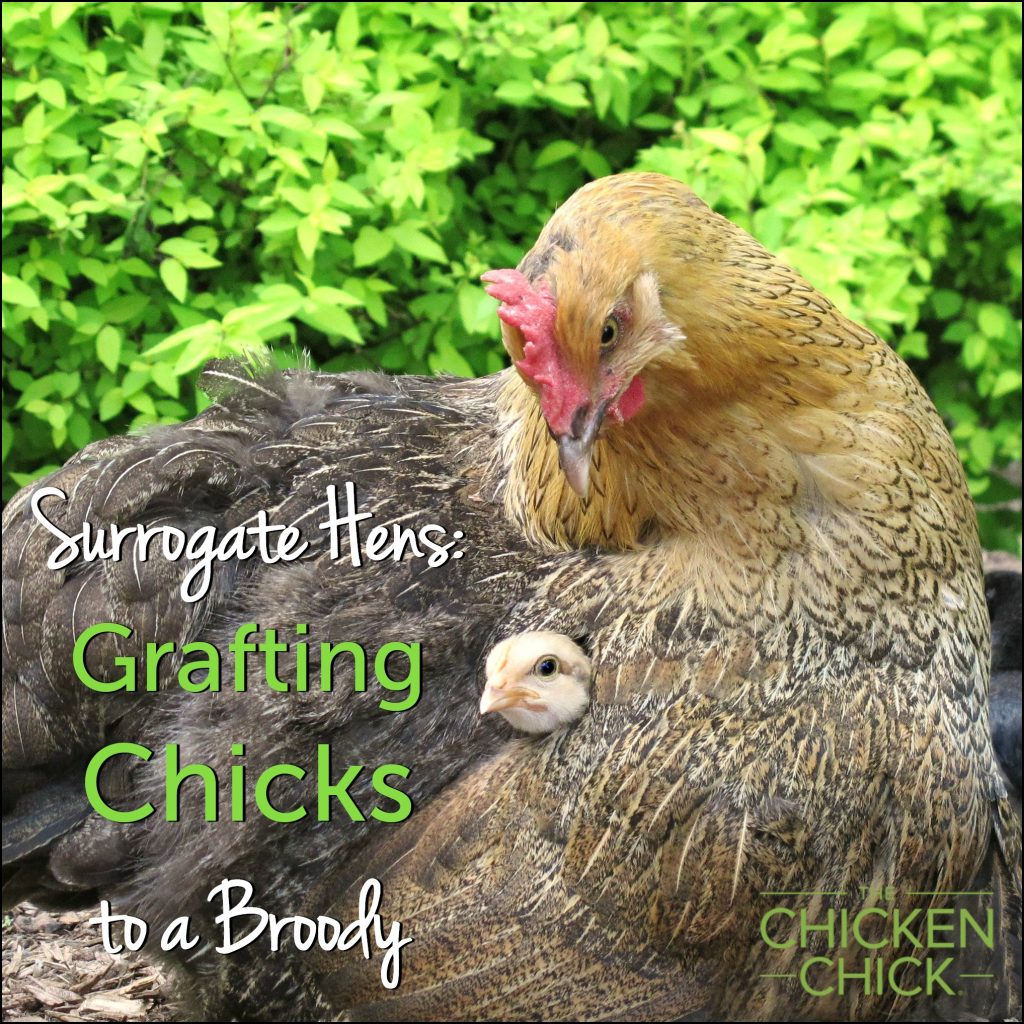










Put up a couple game cam’s and get some pic’s. Take the pic’s to the DA and press charges. You can always file a civil suit for the damages. Hitting someone in the pocket book always gets their attention. 3rd, buy some space in the local sews paper and put in your story complete with the pic’s. The entire town will know what’s up.
Perhaps it’s time to get a new husband!!!!
Regular store bought spring loaded rat traps work well with weasels. I put sardines in oil on the trap and drip some of the oil around the trap. That will get a weasel every time.
I hope it doesn’t turn up at someone else’s property near the new location and cause them the same problems. Relocating is not a viable solution, in my opinion.
Padlocks.